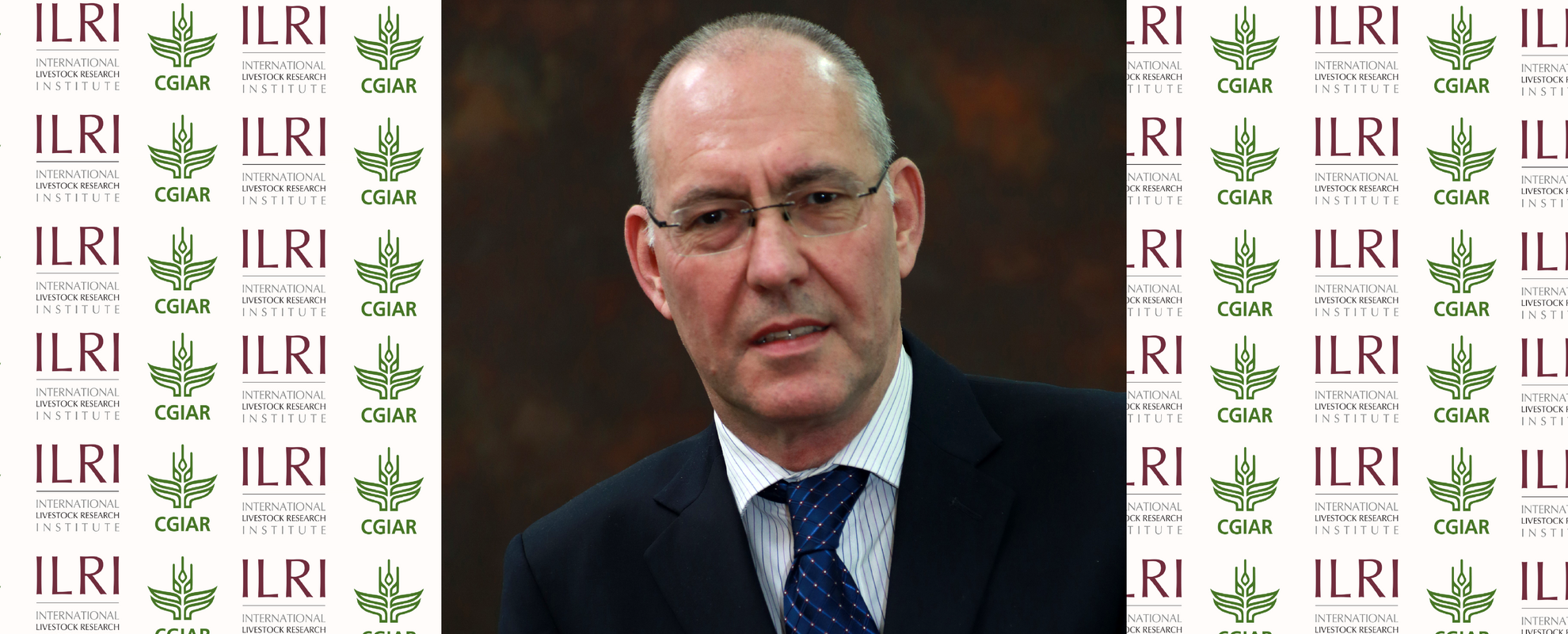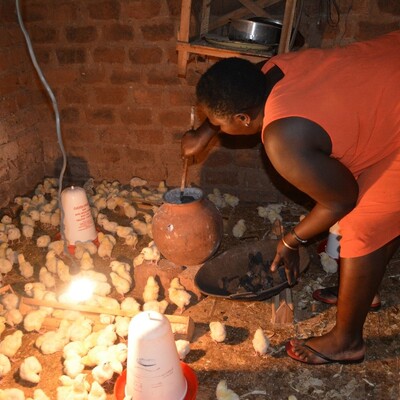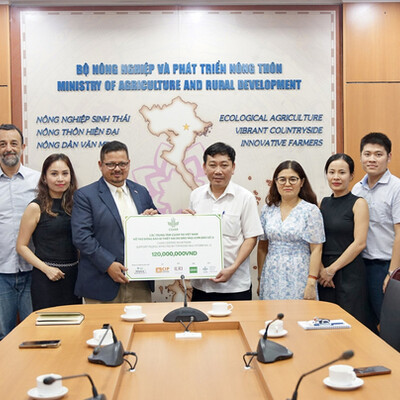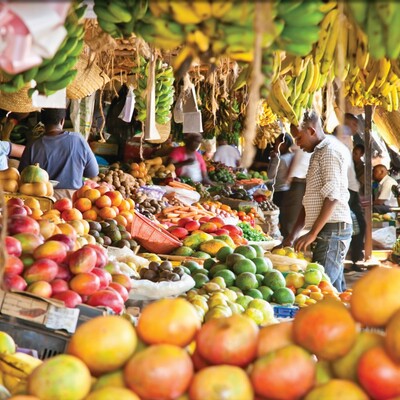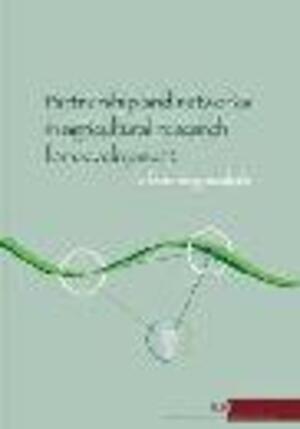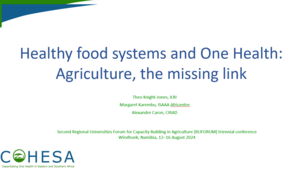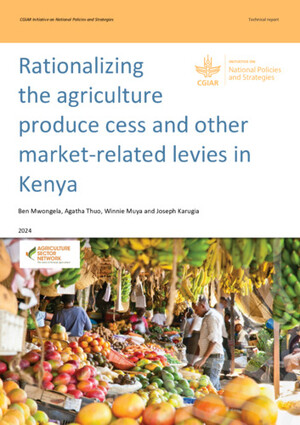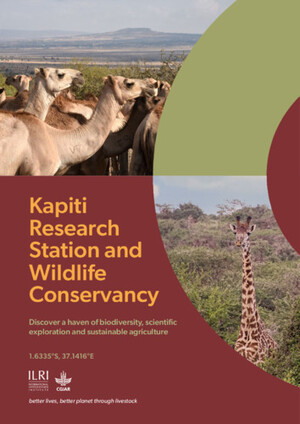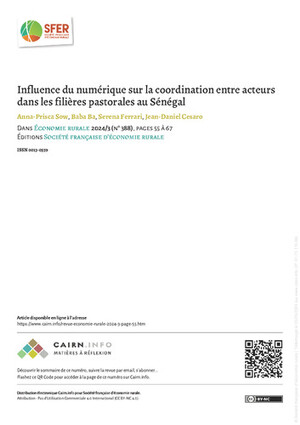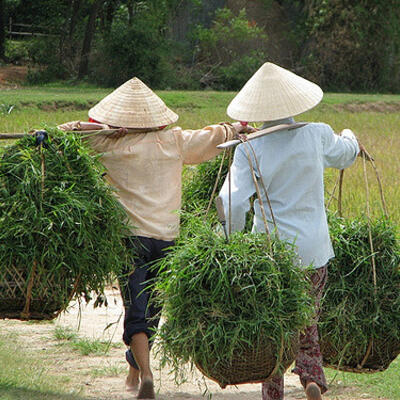
ILRI’s Iain Wright appointed to the HLPE
Iain Wright, deputy director general research and development–Integrated Sciences at the International Livestock Research Institute (ILRI), has been appointed to the fifteen-person High Level Panel of Experts on Food Security and Nutrition (HLPE) Steering Committee. Its members are appointed by the Bureau of the United Nations’ Committee on World Food Security (CFS).
The CFS —which was established in 1974 and at which the CGIAR holds an observer status—is a global intergovernmental platform for multiple stakeholders tasked with ensuring food security and nutrition around the world. The CFS’s role is to develop and endorse related policy guidance to end hunger, which is then relayed to national governments, UN agencies and international organizations. Some of these recommendations stem from scientific and evidence-based reports produced by the HLPE, and others from the Food and Agriculture Organization (FAO), the World Food Programme (WFP), the International Fund for Agriculture Development (IFAD) and representatives of the CFS Advisory Group.
The panel’s leading role in advising UN agencies and governments on food security issues is one of the reasons Wright was delighted to learn that he had been appointed. ‘The importance of food systems and food security in terms of sustainability and healthy diets has never been greater; so, the role of the panel is crucial at this time’, he said. Wright expects there to be some overlap between his role at ILRI and the HLPE. ‘I will be drawing on the work that ILRI and others do that provide an objective evidence base regarding the role of livestock within food systems and its contribution to food security’, he explains. ‘The role of the panel is to bring scientific information and evidence to the discussion and debate. ILRI is one of the many players that is producing that evidence base.’
The selection panel included members from the FAO, the WFP, IFAD, CGIAR, and the Civil Society and Indigenous People’s Mechanism for Relations (CSM) within the CSF. As part of their selection criteria, the panel considered individual research merits, regional expertise and international recognition in their field. Members, who are appointed in an individual capacity, are appointed for two years, renewable, with half of the committee rotating during every cycle.
Besides Wright, two other current or former CGIAR staff members were appointed this year: current HLPE member and Global Lead for Nutrition and Public Health at World Fish, Shakuntala Haraksingh Thilsted, who recently received the 2021 World Food Prize; and CIAT Former Director General, Ruben G. Echevería, whose 40-years’ experience in agriculture innovation in the Global South was recognized. As part of the new Steering Committee, they will be responsible for appointing project teams to produce reports on food security and nutrition. Past reports include the 2016 report on ‘Sustainable Agricultural Development for FSN: What Roles for Livestock?’ with Delia Grace, former co-leader of ILRI’s Animal and Human Health Program and now Professor of Food Safety Systems, NRI, University of Greenwich and a joint appointed scientist at ILRI, as a project team member. The most recent report covered the topic of youth in agriculture.
Wright, who was recognized for his expertise in sustainable livestock systems and development across Europe, Africa and Asia, has held several positions at the International Livestock Research Institute (ILRI). Before his current role, he was program leader of animal science for sustainable productivity at ILRI, and the director general’s representative for Ethiopia. He also served as director of the People, Livestock and the Environment research team, and from 2006 to 2011 he was ILRI’s regional representative for Asia. Within the HLPE, he looks forward to bringing the perspective of the livestock sector to the panel. He emphasizes that the livestock sector ‘looks different in Nairobi than in New York’. Bringing that view—that the ‘role of livestock is different in different parts of the world, and that the challenges and opportunities vary across different parts of the globe’—will be one of his key contributions to the HLPE. ‘It’s not a one-size-fits-all type of solution to the challenges in the livestock sector’, he says.
That perspective is particularly important considering the urgency of issues surrounding food systems and food security. As for what his appointment to the HLPE means for livestock, ILRI and the CGIAR, Wright hopes ‘that it provides an opportunity to demonstrate that while there are many challenges in the livestock sector around public health, such as overconsumption of livestock products and environmental challenges due to climate change, there are also many opportunities. I believe that livestock are crucial to achieving many of the sustainable development goals.’





